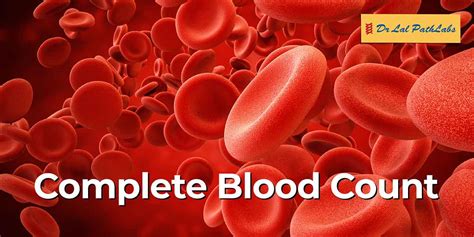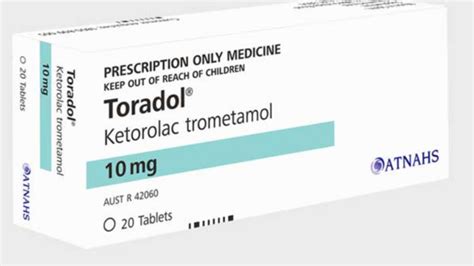Complete Blood Count: Accurate Diagnosis Guaranteed

The Complete Blood Count, commonly referred to as CBC, is a crucial diagnostic tool that plays a pivotal role in assessing an individual’s overall health. It is a series of tests performed on a blood sample to evaluate various components of the blood, including red blood cells, white blood cells, platelets, and hemoglobin. This comprehensive analysis provides healthcare professionals with invaluable insights into the body’s internal environment, enabling them to diagnose a wide range of ailments, from infections and inflammation to blood disorders and cancer.
Understanding the Components of a Complete Blood Count
A CBC typically includes several parameters, each measuring different aspects of the blood. These parameters are:
- Red Blood Cell (RBC) Count: This measures the number of red blood cells in the blood. RBCs are crucial for carrying oxygen from the lungs to the body’s tissues.
- Hemoglobin (Hb): Hemoglobin is a protein in RBCs that carries oxygen. Low hemoglobin levels can indicate anemia or other conditions affecting RBCs.
- Hematocrit (Hct): This is the proportion of blood volume that is occupied by red blood cells. It is also known as packed cell volume (PCV).
- Mean Corpuscular Volume (MCV): MCV measures the average size of red blood cells. It helps in diagnosing the type of anemia.
- Mean Corpuscular Hemoglobin (MCH): This measures the average amount of hemoglobin in each red blood cell.
- Mean Corpuscular Hemoglobin Concentration (MCHC): MCHC measures the average concentration of hemoglobin in a given volume of red blood cells.
- Red Cell Distribution Width (RDW): RDW is a measure of the variation in size of the red blood cells. A higher RDW indicates a larger variation in size, which can suggest a specific type of anemia.
- White Blood Cell (WBC) Count: This measures the number of white blood cells in the blood. WBCs are part of the immune system and help fight infections.
- Differential Count: This provides more detailed information about the types of white blood cells present, including neutrophils, lymphocytes, monocytes, eosinophils, and basophils. Each type of WBC plays a unique role in the immune response.
- Platelet Count: This measures the number of platelets in the blood. Platelets are crucial for blood clotting and preventing excessive bleeding.
The Diagnostic Process
The process of conducting a CBC is straightforward and minimally invasive. A healthcare professional draws a blood sample from a vein, usually in the arm, using a needle and syringe. The blood is then sent to a laboratory for analysis. In some cases, a finger prick may be used to collect a small blood sample, especially for point-of-care testing devices.
The results of a CBC are typically available within a few hours to a few days, depending on the laboratory’s workload and the urgency of the test. These results are then interpreted by healthcare professionals in the context of the patient’s symptoms, medical history, and other diagnostic findings.
Interpretation of CBC Results
Interpreting CBC results requires a comprehensive understanding of what each parameter indicates and how these parameters relate to each other. For instance:
- Anemia is often diagnosed based on low RBC count, hemoglobin, or hematocrit levels.
- Infections can be suggested by an elevated WBC count, particularly if there is a significant increase in one type of WBC.
- Blood clotting disorders may be indicated by abnormal platelet counts or function tests.
It’s essential to consider that CBC results can be influenced by various factors, including dehydration, the time of day the test is taken, and certain medications. Therefore, ambiguous or borderline results may necessitate further testing or a repeat CBC after addressing any potential interfering factors.
Advanced CBC Technologies
Recent advancements in medical technology have led to the development of more sophisticated CBC analyzers that can provide detailed information beyond traditional parameters. These include:
- Automated Differential Count: Provides a detailed breakdown of white blood cell types, which can help in diagnosing specific infections or conditions affecting the immune system.
- Reticulocyte Count: Measures the number of young red blood cells, which can indicate how well the bone marrow is producing new red blood cells.
- Immature Platelet Fraction (IPF): Helps in assessing platelet production, useful in conditions like immune thrombocytopenia.
The Role of CBC in Disease Management
Beyond diagnosis, CBCs play a critical role in managing diseases, particularly those affecting the blood and bone marrow. Regular monitoring of CBC parameters can help in:
- Assessing Treatment Response: For conditions like anemia, monitoring CBC parameters helps in evaluating the effectiveness of iron supplements or other treatments.
- Detecting Relapse Early: In diseases like leukemia, regular CBCs can help in early detection of relapse, allowing for timely intervention.
Conclusion
The Complete Blood Count is an indispensable tool in modern medicine, offering insights into an individual’s health status and aiding in the diagnosis and management of a wide array of conditions. Its ability to provide a snapshot of the body’s internal environment makes it an essential component of both routine check-ups and diagnostic workups for specific symptoms or diseases. As medical technology continues to evolve, the CBC will likely remain a cornerstone of healthcare, with ongoing advancements enhancing its diagnostic capabilities and contributing to more personalized and effective patient care.
What does a Complete Blood Count (CBC) test for?
+A CBC measures various components of the blood, including red blood cells, white blood cells, platelets, and hemoglobin, to assess overall health and diagnose a range of conditions.
How is a CBC performed?
+A blood sample is drawn from a vein, usually in the arm, and sent to a laboratory for analysis.
What can a CBC diagnose?
+A CBC can help diagnose anemia, infections, blood clotting disorders, and certain types of cancer, among other conditions.
How often should a CBC be performed?
+The frequency of CBC tests depends on individual health status and medical conditions. It may be part of routine check-ups for healthy individuals or more frequently for those with ongoing health issues.
Can a CBC be performed at home?
+While some point-of-care CBC devices exist, comprehensive CBC tests typically require a visit to a healthcare facility or laboratory for accurate analysis.



